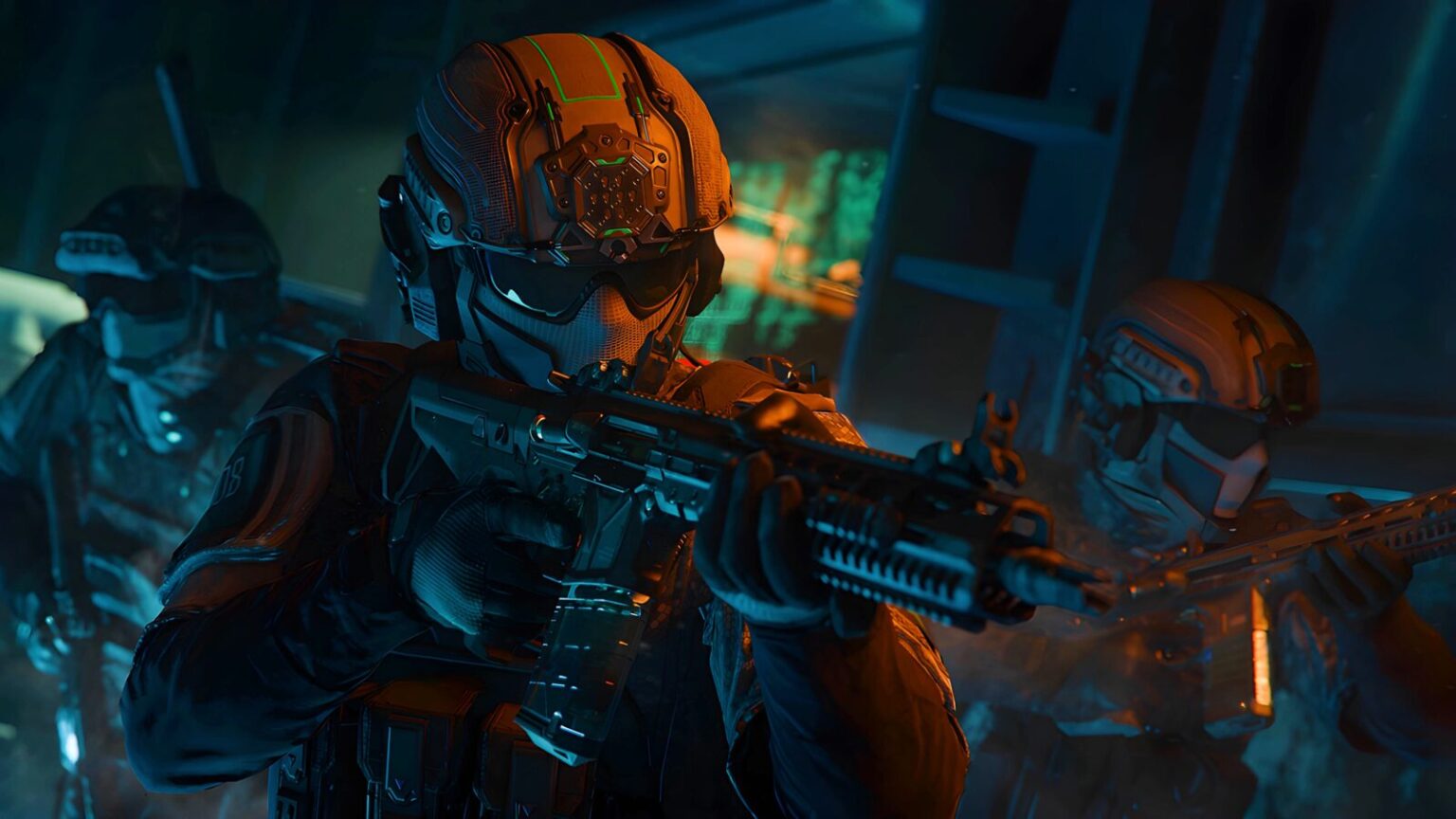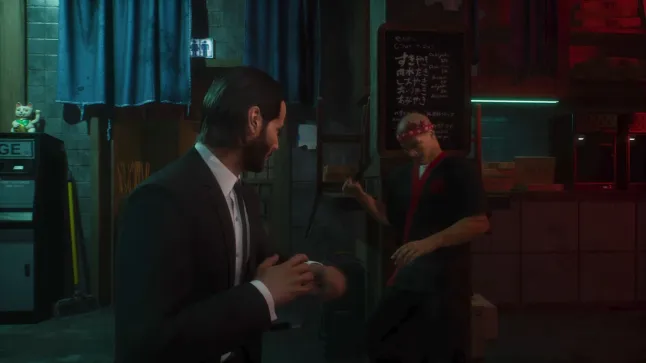TL;DR: Ambitious ideas, great gunplay, and fun movement meet inconsistent pacing, a co-op-first design that hurts solo players, and a repetitive endgame. A bold but uneven Call of Duty campaign that settles into a solid “okay.”
Call of Duty: Black Ops 7
I’ve lived through enough Call of Duty campaigns to trace personal history by them. Modern Warfare 2 was the one I played in a too-small Chicago apartment where the only furniture was a futon and a wobbly IKEA table. Black Ops 3 became my emotional support shooter during a brutal winter. And now, Black Ops 7 will forever be “the one that kept insisting I bring friends,” like a socially anxious dog who refuses to walk without its pack.
From its opening moments, Black Ops 7 radiates an energy I can only describe as experimental confidence layered over narrative whiplash. It’s a strange game—stranger than the trailers imply, stranger than recent entries have dared to be. It’s the kind of campaign that feels like multiple creative visions converged in one room and no one wanted to be the person who said, “Hey, maybe we should slow down.” The result is a blend of sci-fi dreamscapes, frenetic firefights, CoD hallmarks, and a few gameplay mechanics borrowed from co-op shooters who probably want their homework back.
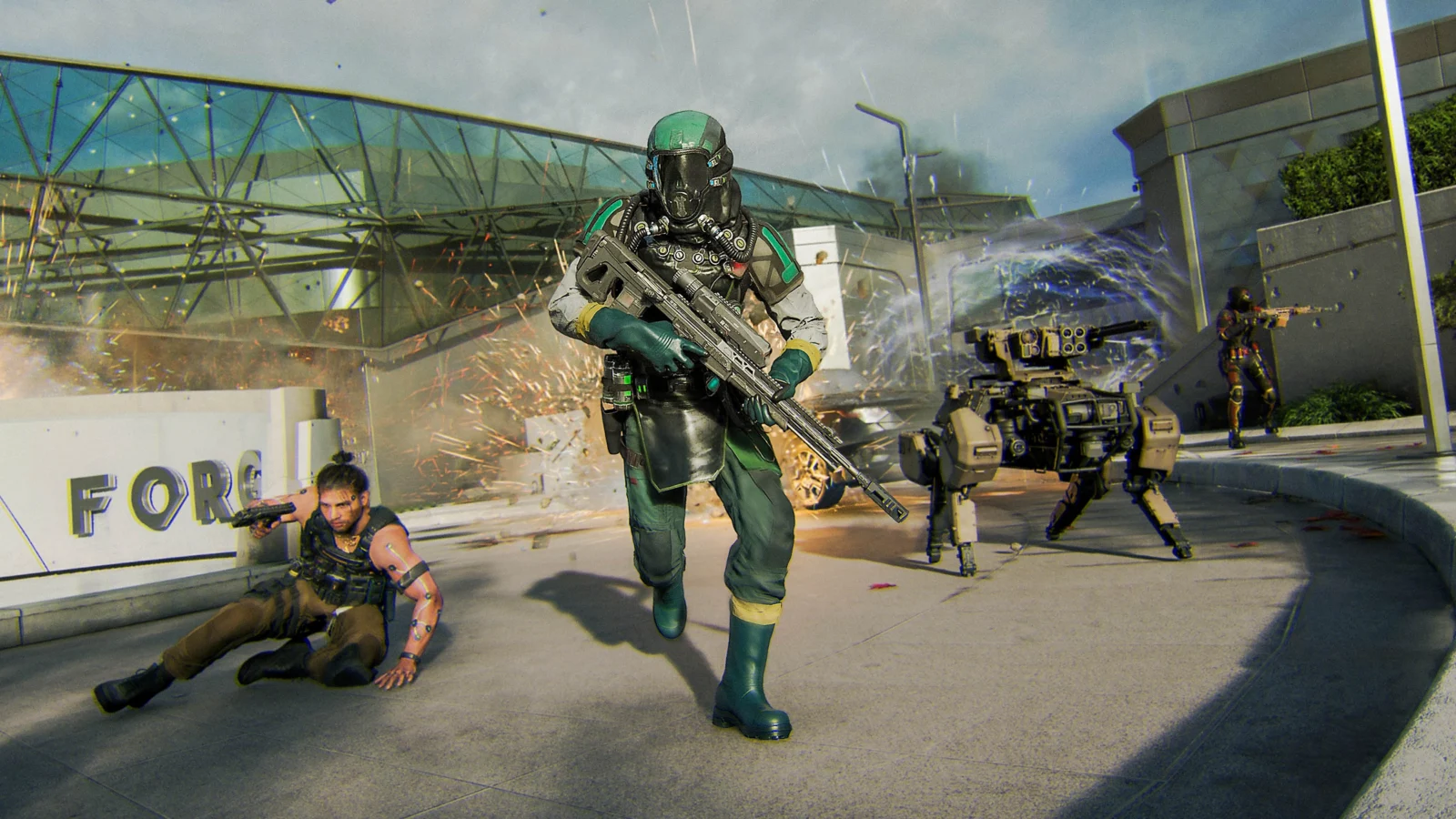
What holds it all together—barely—is the gunplay. What strains it—frequently—is the structure. What fascinates me—consistently—is just how boldly it lunges in every direction at once. And what disappointed me is how many of those lunges miss by inches, not miles.
Black Ops 7 isn’t bad. It isn’t great. It’s that middle sibling of a franchise entry that has plenty of personality but keeps tripping over its shoelaces while trying to show you a magic trick.
When Call of Duty Forgot It Was Call of Duty
The campaign begins with immediate intensity, tossing you into a hallucinatory sequence that feels ripped straight out of a sci-fi psych thriller rather than a traditional military shooter. Treyarch and Raven have gone hard in the direction of unreality this time—fear toxins, distorted environments, impossible structures, the kind of imagery you’d expect in a horror game featuring broken mirrors and unslept nights.
If last year’s Black Ops 6 was about clever mission design and subtle espionage, this one is about velocity. Every mission feels like you’re being yanked by the collar to the next location, the next bizarre dreamspace, the next boss arena, the next surprise shift in visual tone. Exotic locations fly past like postcards you barely have time to read before they’re swallowed by gunfire and smoke.
But beneath the relentless pacing, something is missing: coherence.
The best CoD campaigns—from Modern Warfare’s sniper crawl to Black Ops 1’s mind-bending interrogation arc—know how to marry spectacle to narrative. Black Ops 7 often lets spectacle drag the story behind it like a half-tied shoelace. It’s thrilling, it’s strange, but it rarely gives you space to breathe or understand the emotional logic behind the chaos.
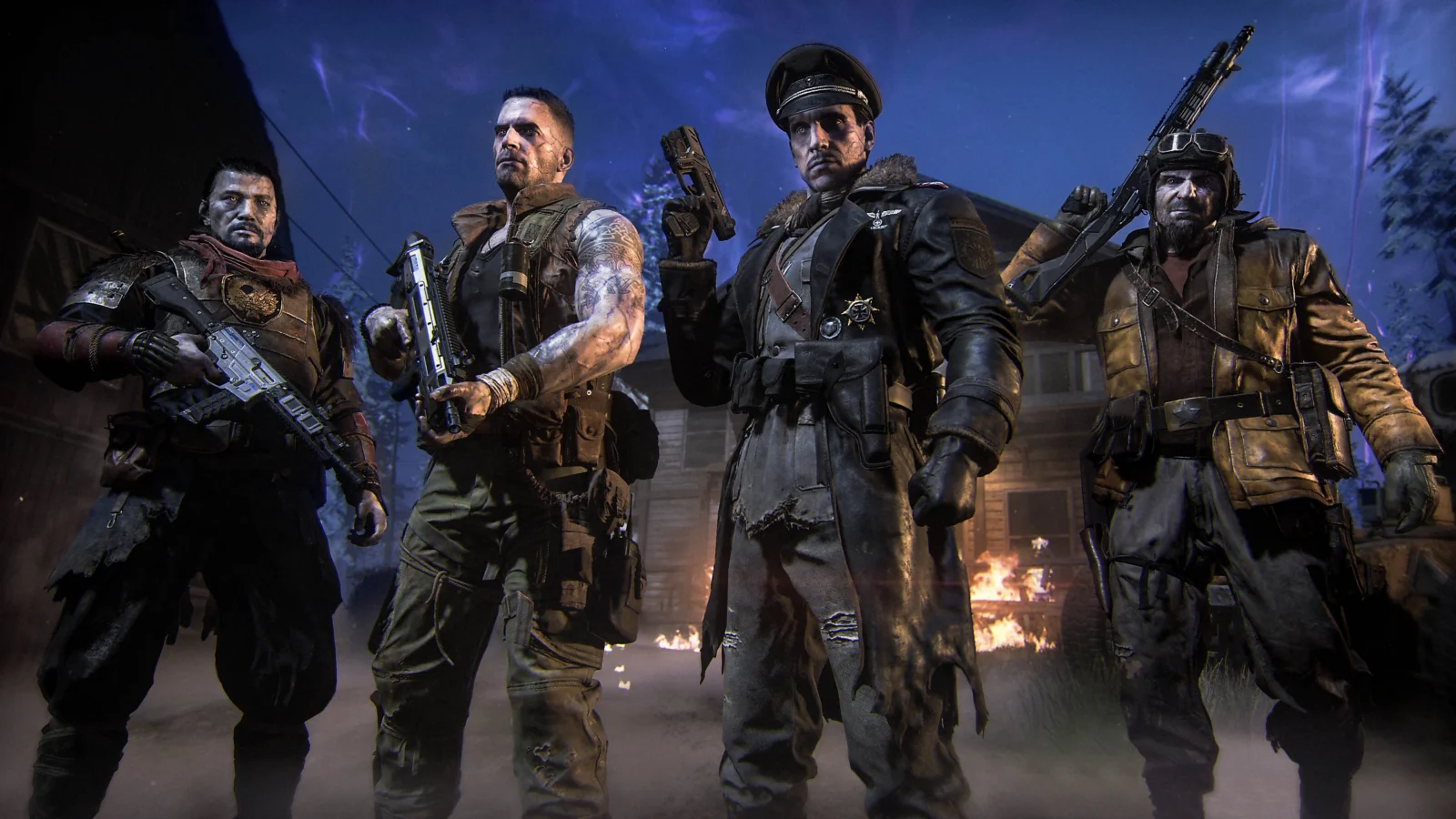
That disconnect becomes a defining trait: a campaign that feels like a collection of cool ideas instead of a unified journey.
Still, I have to respect how bold the attempt is. This is a big swing. A wild swing. A swing that might accidentally hit someone in the crowd, but at least it wasn’t afraid to go for the fences.
The Co-Op Campaign That Really Wants You to Have Friends
Look, I love co-op. I love chaotic Discord nights where someone’s mic is peaking because they’re screaming about a zombie gnawing on their shin. I love well-timed flanks and synchronized rocket launchers.
But I also enjoy playing campaigns alone. It’s where I soak in the pacing, the storytelling, the atmosphere. It’s personal time.
Black Ops 7 is the first Call of Duty campaign where I felt actively punished for wanting that.
The moment-to-moment objectives were obviously designed for four people. You can practically feel the invisible checklist: “One person hacks the panel while another provides cover while another handles the C4 while another protects the rear.” Except if you’re solo, congratulations—you are all four people. Hope your multitasking skills are god-tier.
Enemy counts barely adjust for single-player, meaning you get swarmed early. Even simple encounters become chaotic juggling acts. There are no AI companions to fill the gaps, no quiet narrative moments with a squad at your side, no way to pause the game because it’s online-only. If you step away, you get booted. If you try to explore, enemies respawn in inefficient, almost MMO-like clumps.
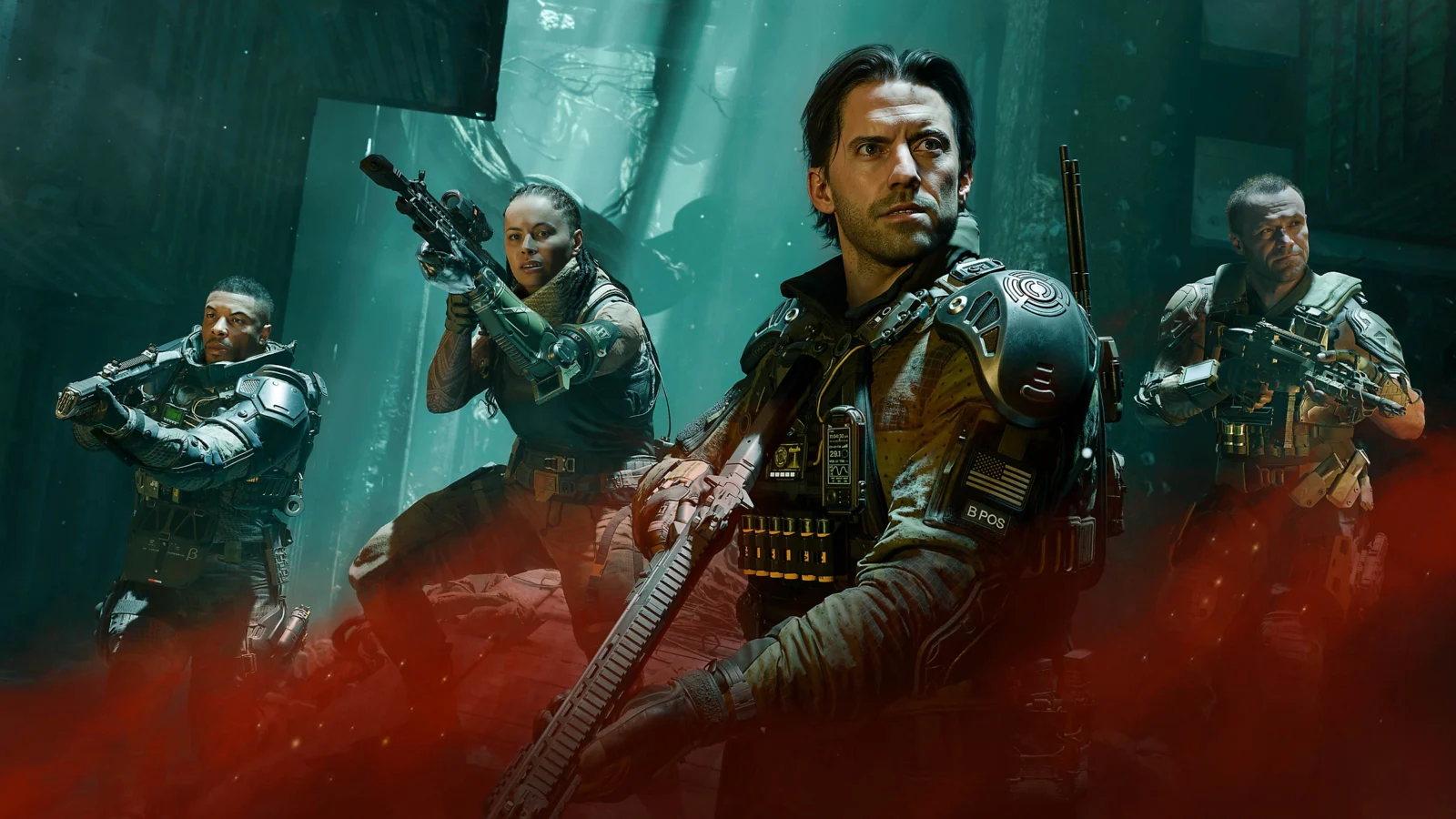
Playing with friends, though? That’s where the campaign finally makes sense.
Boss fights become entertaining, because their multi-weak-point design stops being punishment and starts being opportunity. Traversing open areas suddenly feels purposeful. The gadgets—especially the grapple hook and super-jump—turn traversal into a multiplayer playground, a kinetic dance of zip-lines and rooftop flyovers.
With friends, the campaign becomes kinetic fun. Without them, it’s an uphill battle against design choices that feel hostile to solo players.
The Good, the Great, and the “Okay Fine I’ll Admit It, This Part Ruled”
Despite the uneven structure, this campaign absolutely nails the fundamentals of what makes Call of Duty feel good to play. The shooting is crisp, the recoil satisfying, the impact effects explosive enough to make even basic SMGs feel dangerous. Sniper rifles deliver headshots that snap like dry branches. Assault rifles are responsive, aggressive, and tuned with that unmistakable CoD rhythm.
The gadgets are genuinely cool, too. Grapple hooks create verticality that CoD campaigns rarely commit to. The wingsuit brings unexpected fluidity, letting you skim through firefights like an adrenaline-junkie sugar glider. Killstreak-like abilities make brief appearances in your hands, and their destructive potential never gets old.
Enemy variety surprised me. Between human factions, robotic armies, nightmare creatures, and bioengineered horrors, you’re fighting something new almost every mission. Boss fights—even the simpler ones—add spice: huge health bars, projectile assaults, arena mechanics that force movement.
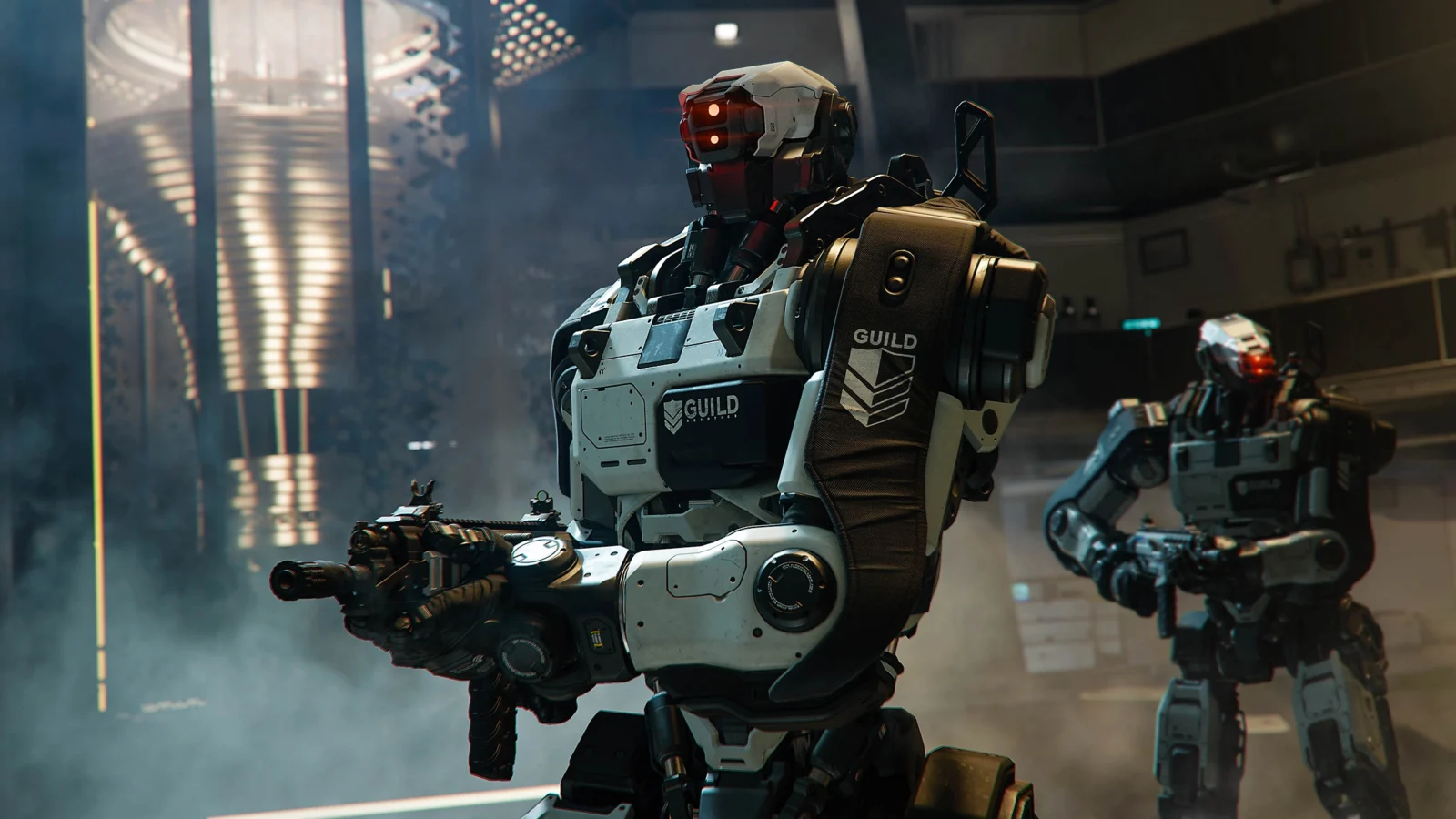
For a moment here and there, the campaign taps into something brilliant, something that reminds me of the awe I felt during Titanfall 2’s time-shifting mission or Modern Warfare’s tense house raids. Flashes of greatness. You can see what the designers were reaching for, even if they don’t always get there.
If the campaign were more consistent, this could’ve been something special.
The Endgame Concept That Nearly Works
Once the credits roll, the campaign hands you its optional endgame—a pseudo–extraction shooter set in the sprawling region of Avalon. It’s a compelling idea on paper: drop into an open zone with up to three friends, complete activities, build your combat rating, level up your perks, and eventually challenge the big bad buried in the island’s poisoned heart.
And for the first hour or two, it’s legitimately fun. Movement shines brightest here. The grapple-wingsuit combo becomes addictively fluid. There’s a sense of escalation as your character grows stronger, faster, more resilient. The map is huge, and there’s a thrill to seeing your rating tick up while you debate whether to push deeper or extract safely.
The trouble comes from repetition.
Almost every activity boils down to “go to place, clear enemies.” There’s no mystery-solving, no narrative breadcrumbs, no clever objective variety, no puzzles like the ones glimpsed in the main campaign. By the time you’ve run through the same clearing activities for the tenth time, the novelty evaporates.
With a squad, it’s “decent fun for an evening.” Solo, it’s “why am I doing this.”
There are bones here—good bones, rib-cage-of-a-dragon bones—but the mode needs more meat to truly matter.
A Story That Tries to Matter But Gets Lost in Its Own Rush
Black Ops 7’s narrative aims high, tying together threads from Black Ops 2 and Black Ops 6. It wants to explore grief, memory, trauma, and legacy through David “Section” Mason. And you can feel the sincerity—the voice performances, the emotional cues, the flashbacks warped by toxin-induced fearscapes.
But the campaign doesn’t give the story enough time to breathe.
Plot points fly past at breakneck speed. Characters appear and vanish before you can grasp their relevance. Supporting squad members get slivers of personality but rarely anything more. It’s a story paced like someone holding down the fast-forward button.
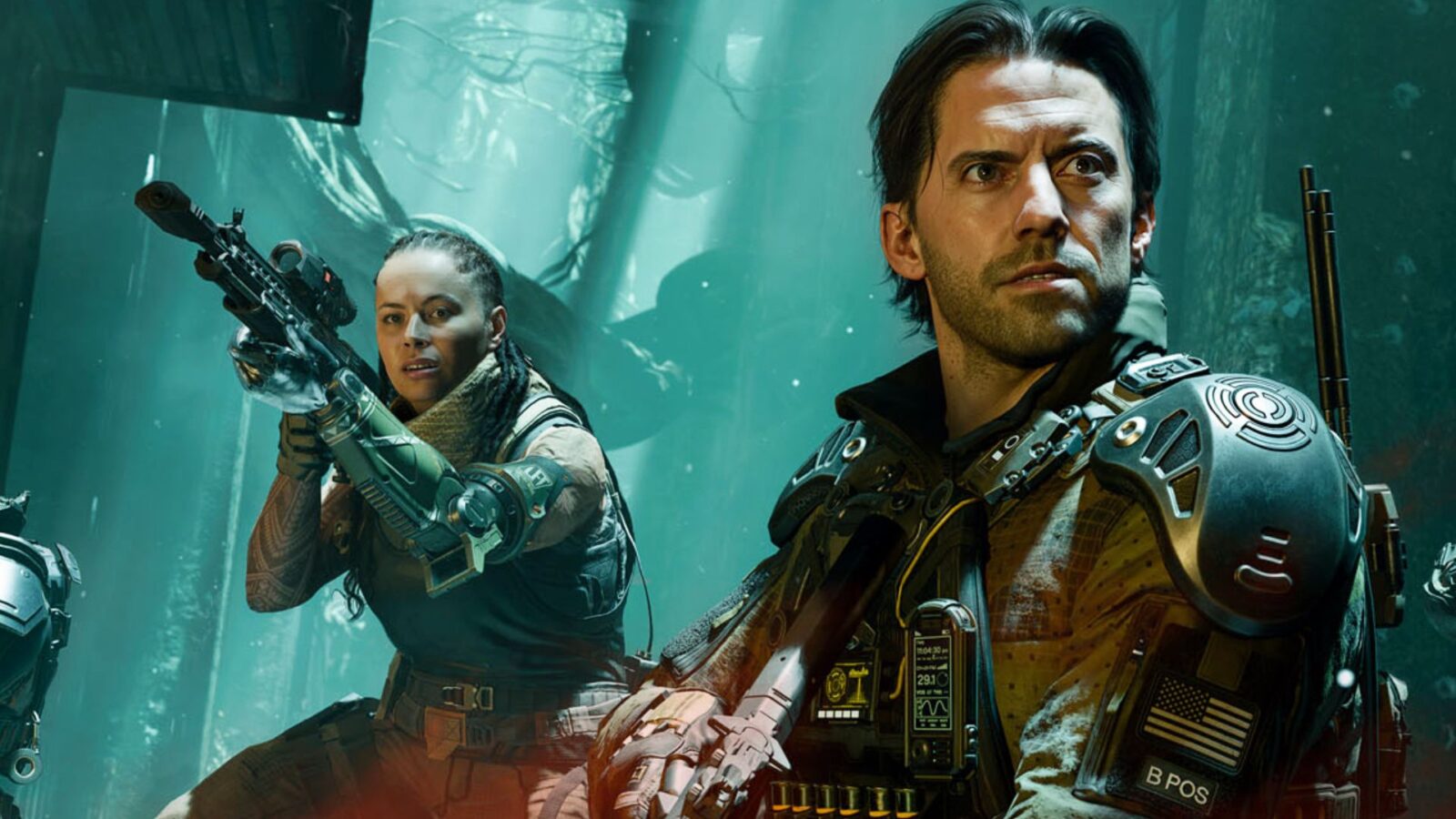
Fans of the series will enjoy the callbacks, the returning faces, the little lore crumbs sprinkled throughout. But newcomers? They’ll feel like they’ve walked into a season finale where everyone expects them to know the family tree.
Even with the emotional themes, even with the strong attempt at character focus, the story doesn’t linger in the mind the way Black Ops 1 or Modern Warfare 2019 did. It’s earnest. It’s ambitious. It’s just not polished enough to leave a lasting mark.
Final Thoughts
Black Ops 7’s campaign is like watching a brilliant musician improvise wildly on stage—moments of beauty, moments of chaos, moments where you realize they’re experimenting more than performing. I admire the risks. I admire the weirdness. I admire the audacity of trying to reinvent what a Call of Duty campaign can be.
But admiration isn’t the same as enjoyment.
When the campaign clicks—when you and your squad are swinging between rooftops, clearing enemies in synchronized chaos—it’s genuinely thrilling. When it doesn’t click—and you’re solo, repeating objectives, or slogging through repetitive endgame—it becomes forgettable.
Black Ops 7 doesn’t fail. It just doesn’t come together.
It’s okay. Truly okay. That’s its destiny.


